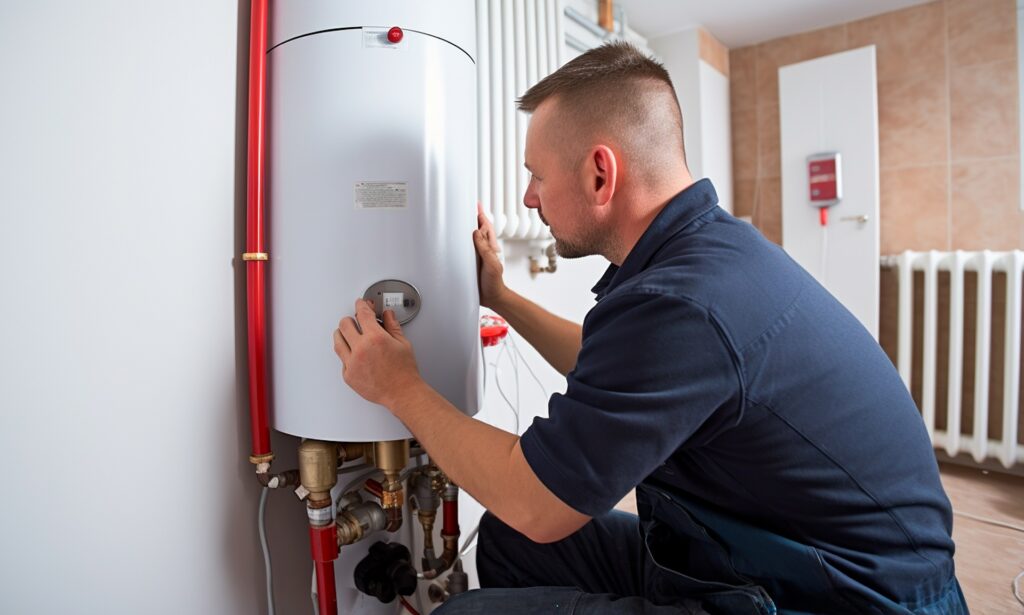Maintaining water heaters efficiently is important for homeowners in Santa Rosa Beach. Sediment buildup is a common issue that can affect the performance of water heaters, leading to reduced efficiency and potential damage. Understanding how sediment forms and impacts your heater can help prevent costly repairs and ensure you continue to enjoy a reliable hot water supply.
Sediment buildup occurs when minerals in the water, such as calcium and magnesium, settle at the bottom of the water heater tank. This process can cause a range of problems, including reduced heating efficiency, increased energy usage, and even shortened lifespans for water heaters. Taking proactive steps to manage sediment buildup is essential for maintaining optimal water heater performance.
Understanding Sediment Buildup
Sediment buildup is essentially the accumulation of mineral deposits inside water heater tanks. As water is heated, dissolved minerals, primarily calcium and magnesium, settle out and form a layer at the bottom of the tank. This layer can eventually harden and create several issues that impact the heater’s performance.
There are a few common causes of sediment buildup in water heaters. Hard water, which contains higher levels of dissolved minerals, is a primary contributor. Heaters that continuously operate at high temperatures also tend to gather more sediment, as the heat causes minerals to precipitate more quickly.
This buildup can lead to blockage of the heating element or burner, causing the heater to work harder to achieve the desired water temperature. As a result, the heater consumes more energy, leading to higher utility bills. Sediment can trap water beneath it, causing popping or rumbling noises as the water heats and boils.
Signs of Sediment Buildup in Water Heaters
It is important to recognize the symptoms of sediment buildup so that appropriate measures can be taken to prevent further issues.
– Reduced Heating Efficiency: If it takes longer for your water heater to supply hot water, sediment may be insulating the heating element from the water, reducing heat transfer.
– Unusual Noises: Popping, rumbling, or crackling sounds coming from the heater are often caused by sediment buildup.
– Fluctuating Water Temperature: Inconsistent hot water supply or sudden changes in temperature are common indicators of sediment interference.
– Increased Energy Bills: A sudden uptick in energy costs may suggest the water heater is working harder due to sediment issues.
When these signs appear, consulting with our professionals can help diagnose and address sediment buildup before it leads to more significant problems. Taking action promptly can save you from higher repair costs and extend the life of your water heater.
Prevention Tips for Sediment Buildup
Preventing sediment buildup in your water heater is key to maintaining its efficiency and extending its lifespan. By taking a few preventative measures, you can reduce sediment accumulation and keep your water heater running smoothly.
1. Schedule regular maintenance checks to have our technicians inspect and clean your water heater. Regular maintenance ensures that any sediment is removed before it causes issues.
2. Implement effective flushing techniques. Flushing your water heater regularly helps to expel settled minerals and clear the tank. This process involves draining your heater and refilling it, which helps to minimize sediment accumulation.
3. Consider using water softeners if your home has hard water. Water softeners reduce the number of minerals entering the tank, decreasing the chances of sediment buildup.
When to Contact Our Professionals
While basic maintenance can be effective, there are times when professional help is necessary. Our technicians can conduct thorough assessments and perform routine inspections of your water heater. This professional assessment ensures all potential issues, including hidden sediment buildup, are addressed quickly.
Consider reaching out if you notice any unusual symptoms, such as persistent noises or fluctuating water temperatures. Our team can evaluate these signs and recommend appropriate actions to restore your heater’s performance.
Keeping Your Water Heater Efficient in Santa Rosa Beach
Maintaining your water heater’s efficiency helps you avoid unexpected repairs and keeps your utility bills in check. By being proactive with maintenance and addressing any signs of sediment buildup promptly, you can enjoy a consistent hot water supply without disruptions.
Taking these steps not only extends the life of your water heater but also contributes to a more sustainable household. Continuing regular upkeep, recognizing warning signs, and seeking professional guidance when needed will ensure your home in Santa Rosa Beach remains comfortable and efficient.
If you want to keep your water heater running smoothly and avoid unpredictable downtime, make sure to have regular inspections and maintenance to address sediment buildup early. If you are ready to trust our professionals to keep your water heaters in Santa Rosa Beachoperating at their best, for a quick estimate or to book a service visit, please contact us today.



